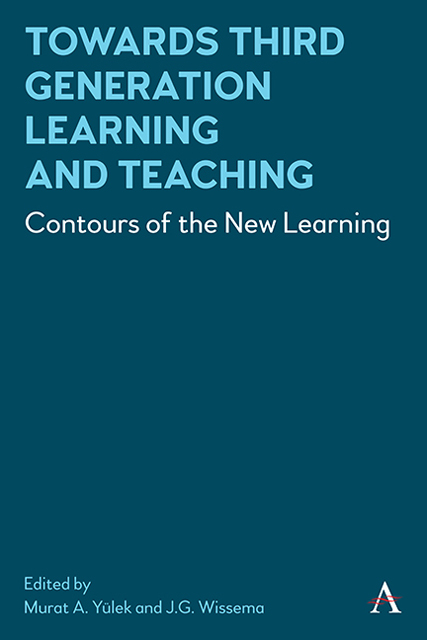Chapter 6 - Habits of Mind: New Insights into Teaching and Learning
Published online by Cambridge University Press: 10 January 2023
Summary
Introduction
The future challenges us with complex and conflicting models of what to value, what to believe, how to make decisions and how to live productively (Lieberman, 2021). Numerous international futurists, neuroscientists, educators and sociologists advocate for problem solving, creating, innovating and communicating to sustain our global society. The needs they list are dispositions that are necessary to lend oneself to learning (Costa & Kallick, 2016). This chapter makes the case for dispositional learning as most needed for learning, working, and citizenship for living productively in the new era.
What are Dispositions?
In this chapter, the term, dispositions, refers to thinking dispositions—tendencies toward particular patterns of intellectual behavior. Perkins, Jay and Tishman (1993) propose three psychological components which must be present to initiate dispositional behavior: (1) sensitivity—the perception of the appropriateness of a particular behavior; (2) inclination—the felt impetus toward a behavior and (3) ability—the basic capacity to follow through with the behavior. For example, someone who is genuinely disposed to seek balanced reasons in an argument is (1) sensitive to occasions to do so (for instance while reading a newspaper editorial); (2) feels moved, or inclined, to do so; and (3) has the basic ability to follow through with the behavior—they identify the pro and con reasons for both sides of an argument.
16 Habits of Mind
The Habits of Mind is a set of thinking dispositions at the core of social, emotional and cognitive behaviors. These habits were derived from studies of successful, efficacious problem-solvers from many walks of life. While there may be more, Costa and Kallick (2008) described 16 Habits of Mind that can serve as a starting point for further elaboration and description. Each of the habits end with -ing verbs to signal that growth is a life-long journey rather than something that can be mastered. While there is no order of importance, each of the habits are numbered for easier reference.
Habit 1. Persisting
Do your students ever give up in despair when a task proves to be difficult or when the answer to a problem is not immediately found? Do they say, “I can’t do this,” or “it’s too hard?” Do they sometimes write down any answer just to get a task over with or find themselves easily distracted from a task rather than sticking with it?
- Type
- Chapter
- Information
- Towards Third Generation Learning and TeachingContours of the New Learning, pp. 93 - 110Publisher: Anthem PressPrint publication year: 2022



